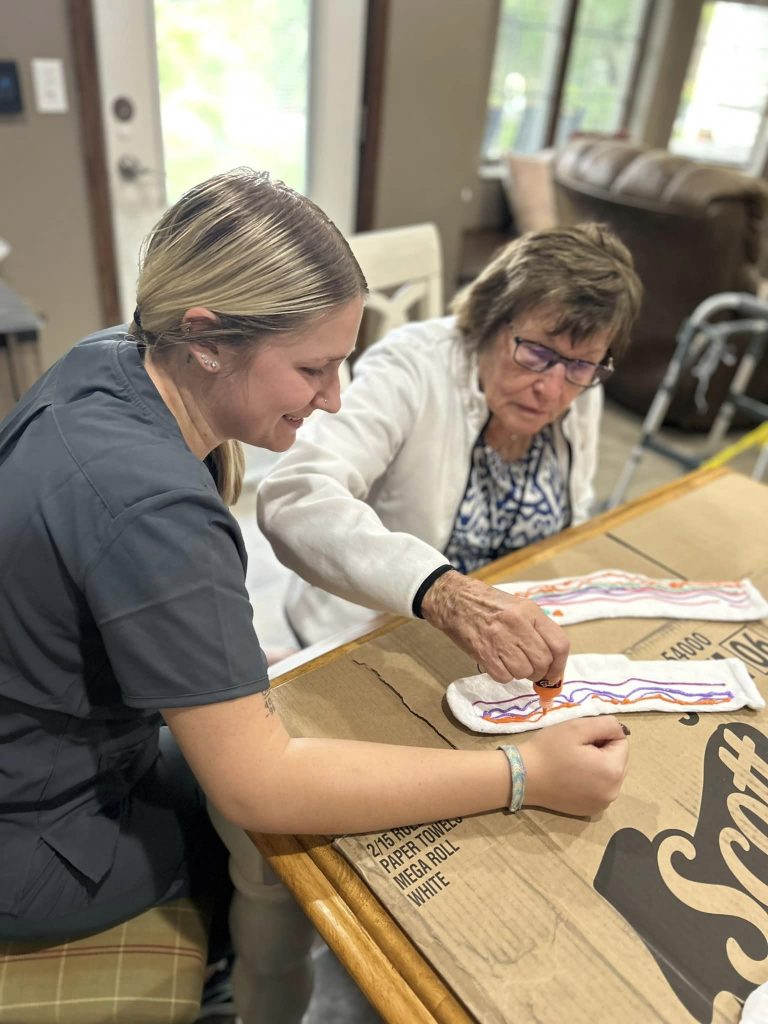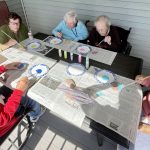
Introduction
Dementia care is a complex, multifaceted journey that requires empathy, patience, and a deep understanding of the condition. This guide delves into essential aspects of dementia care, from diagnosis and daily management to supporting caregivers and considering end-of-life care. Our aim is to provide a comprehensive resource for those navigating the challenges of dementia care, offering both practical advice and emotional support.
Understanding Dementia
Dementia is an umbrella term for conditions characterized by the impairment of at least two brain functions, such as memory loss and judgment. Symptoms include forgetfulness, limited social skills, and thinking abilities so impaired that they interfere with daily functioning. Alzheimer’s disease accounts for 60-80% of cases. Dementia care begins with a thorough diagnosis, understanding the specific type of dementia, and tailoring care approaches to the individual’s needs.
Creating a Safe and Supportive Environment

Safety in the living environment is paramount for individuals with dementia. Simple modifications can significantly reduce risks; this includes removing tripping hazards, installing grab bars in critical areas, and ensuring the home is easy to navigate. Creating a supportive environment also involves maintaining a routine to provide structure and reducing clutter to help prevent confusion and agitation.
Effective Communication Techniques
Communicating effectively with a person who has dementia involves patience, simplicity, and clarity. Use short, straightforward sentences and maintain eye contact. It’s important to listen actively and reassure the person, showing that you value their thoughts and feelings. Non-verbal communication, such as touch, gestures, and facial expressions, can also be powerful in conveying your message and maintaining a connection.
Nutrition and Dementia Care
Nutrition plays a critical role in dementia care. Individuals with dementia may experience changes in appetite or preference and may forget to eat or drink. Ensuring a balanced diet rich in fruits, vegetables, whole grains, and lean protein can help manage symptoms and improve quality of life. Strategies such as keeping a routine eating schedule, providing small, nutrient-dense snacks, and creating a pleasant eating environment can encourage better nutrition.
Physical Activity and Engaging Activities
Physical activity is beneficial for people with dementia, improving mood, maintaining muscle strength, and enhancing cardiovascular health. Tailored activities that match the individual’s interests and abilities can also stimulate cognition and promote well-being. Ideas include walking, gentle stretching, gardening, music, and art, which can all be adapted to the person’s current abilities and preferences.
Managing Behavioral and Psychological Symptoms
Behavioral and psychological symptoms of dementia (BPSD), such as agitation, aggression, and wandering, can be challenging. Non-pharmacological strategies should be the first line of approach, including environmental modifications, structured routines, and activities that engage the person in meaningful ways. Understanding the triggers for certain behaviors and addressing them directly can also be effective.
Dementia Care Options
As dementia progresses, the level of care required will increase. Options range from in-home care services, which allow the individual to stay in a familiar environment, to assisted living and nursing homes that offer more comprehensive support. The choice depends on the individual’s needs, the progression of the disease, and the caregiver’s capacity.
Legal and Financial Planning for Dementia Care
Early planning for the legal and financial aspects of dementia care is essential. This includes setting up power of attorney, creating a living will, and exploring insurance options and benefits. Planning ahead can help ensure that the individual’s wishes are respected and that resources are in place to cover care needs.
Support for Caregivers
Caregivers play a critical role in dementia care but also face significant stress and burnout. Finding support through community resources, support groups, and respite care is vital. Caregivers should also prioritize their own health and well-being, recognizing when they need to take breaks and seek additional help.
Conclusion
Dementia care is a journey filled with challenges, but also moments of joy and connection. By understanding the disease, creating a supportive environment, and utilizing available resources, caregivers can provide compassionate care that enhances the quality of life for individuals with dementia. Remember, you’re not alone on this journey—support and resources are available to help navigate the complexities of dementia care.
FAQs
- What are the first signs of dementia?
Early signs include forgetfulness, losing track of time, and becoming lost in familiar settings. - How can I make my home safer for someone with dementia?
Increase lighting, remove tripping hazards, and install locks on potentially dangerous appliances. - What foods are beneficial for someone with dementia?
A diet high in fruits, vegetables, whole grains, and omega-3 fatty acids can support brain health. - How do I deal with challenging behaviors in dementia?
Identify triggers, maintain a calm environment, and use redirection and reassurance. - Where can caregivers find support?
Local and national organizations offer resources, support groups, and respite care options.





